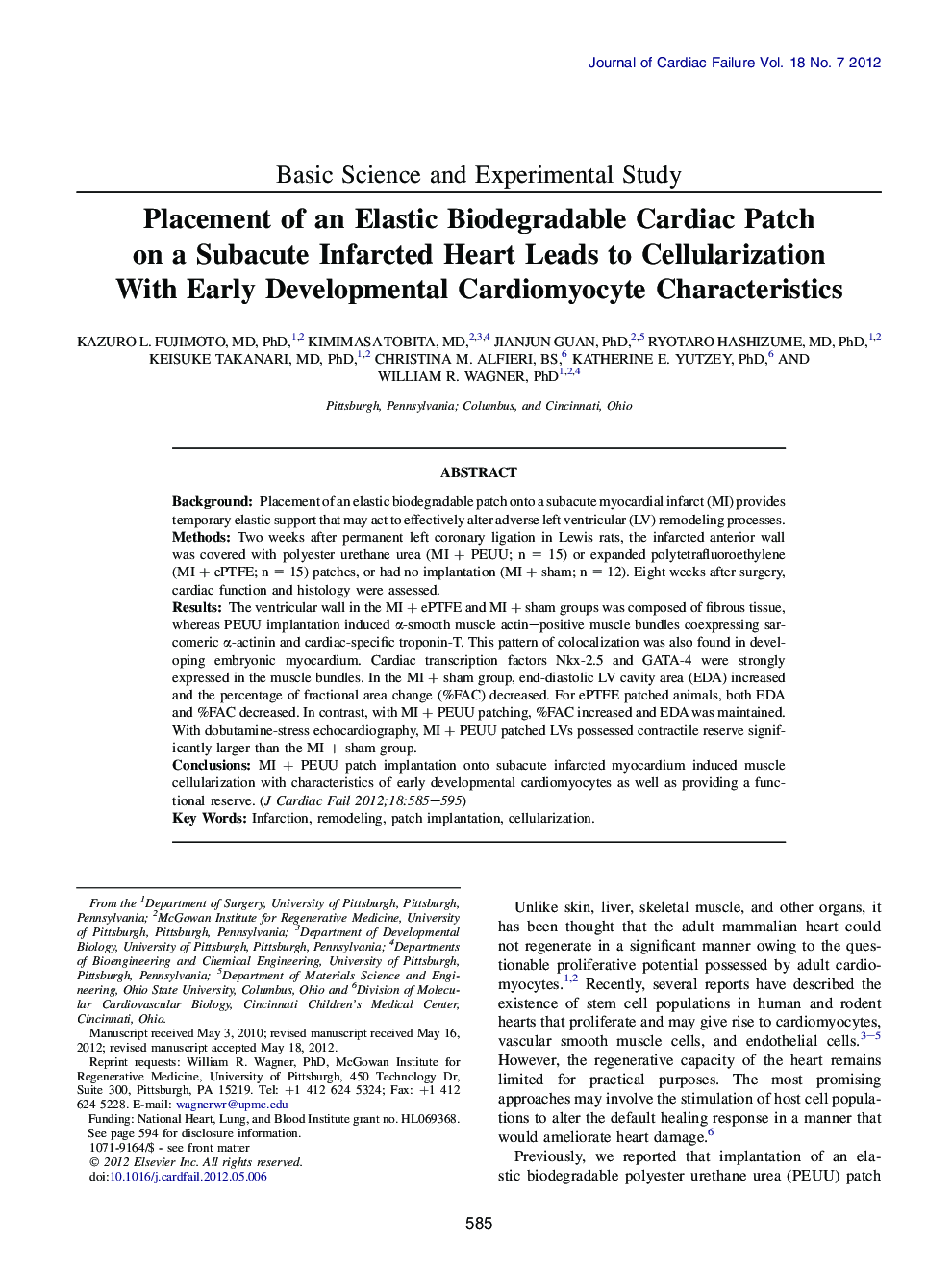| کد مقاله | کد نشریه | سال انتشار | مقاله انگلیسی | نسخه تمام متن |
|---|---|---|---|---|
| 2960611 | 1178362 | 2012 | 11 صفحه PDF | دانلود رایگان |

BackgroundPlacement of an elastic biodegradable patch onto a subacute myocardial infarct (MI) provides temporary elastic support that may act to effectively alter adverse left ventricular (LV) remodeling processes.MethodsTwo weeks after permanent left coronary ligation in Lewis rats, the infarcted anterior wall was covered with polyester urethane urea (MI + PEUU; n = 15) or expanded polytetrafluoroethylene (MI + ePTFE; n = 15) patches, or had no implantation (MI + sham; n = 12). Eight weeks after surgery, cardiac function and histology were assessed.ResultsThe ventricular wall in the MI + ePTFE and MI + sham groups was composed of fibrous tissue, whereas PEUU implantation induced α-smooth muscle actin–positive muscle bundles coexpressing sarcomeric α-actinin and cardiac-specific troponin-T. This pattern of colocalization was also found in developing embryonic myocardium. Cardiac transcription factors Nkx-2.5 and GATA-4 were strongly expressed in the muscle bundles. In the MI + sham group, end-diastolic LV cavity area (EDA) increased and the percentage of fractional area change (%FAC) decreased. For ePTFE patched animals, both EDA and %FAC decreased. In contrast, with MI + PEUU patching, %FAC increased and EDA was maintained. With dobutamine-stress echocardiography, MI + PEUU patched LVs possessed contractile reserve significantly larger than the MI + sham group.ConclusionsMI + PEUU patch implantation onto subacute infarcted myocardium induced muscle cellularization with characteristics of early developmental cardiomyocytes as well as providing a functional reserve.
Journal: Journal of Cardiac Failure - Volume 18, Issue 7, July 2012, Pages 585–595